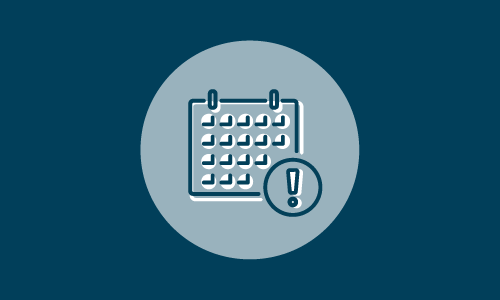4 reasons MAP Accelerator is
the right tool for right now
Where are my students right now relative to grade-level standards? How can I catch them up without falling behind with this year’s content? How can I balance whole-class learning with small-group work when I have some students in person and some online?
These are just a few of the questions teachers have been grappling with since schools were first impacted by COVID-19 a year ago. Recent research indicates that concerns about the impact of COVID disruptions on student achievement are well founded, especially in math. NWEA researchers compared MAP® Growth™ data from fall 2020 to data from fall 2019 and found that student achievement in math dropped by 5–10 percentile points over that period.
View articleTopics: Math
Products: MAP Accelerator
Related Topics


Infographic
From impact to recovery: A timeline of COVID research
This infographic provides an overview of key moments in COVID research along with context of what was happening at that point in time.
Topics: Assessment, Education research, Math
Products: MAP Growth


Guide
When are students “ready” for Algebra 1
This guide provides schools and districts with recommendations on how to use the MAP Growth 6+ math assessment data as a starting point for identifying students who may be ready for Algebra 1.
Topics: Assessment, Education research, Math
Products: MAP Growth


Podcast
The Continuing Educator | Secrets & strategies from high growth classrooms, with Chase Nordengren
For this episode, we’re once again joined by Dr. Chase Nordengren, principal research lead for Effective Instructional Strategies at NWEA to talk about teacher-led approaches to academic recovery.
Chase works closely with leading scholars from around the globe to turn theory into actionable practices to drive instructional improvement. His latest study, High Growth for All, captured ways teachers in one Chicago-area district are leading the academic recovery effort and producing above average academic growth over multiple years for kids across the achievement spectrum
Chase is also the author of Step into Student Goal Setting: A Path to Growth, Motivation, and Agency from Corwin Press.
Topics: Assessment, Education research, Insights and reports, Instructional strategy & resources, Math, Professional learning
Products: MAP Growth, Professional Learning


Podcast
The Continuing Educator | Changing attitudes on assessment literacy, with Jacob Bruno
“Professional learning should be intensive, collaborative, job-embedded, and data-driven.”
Jacob hops from the host’s chair to the hot seat as he sits down with Kailey to discuss his journey through the education world to become a leader in professional development for teachers. Starting with his time working with abused & neglected children, Jacob realized how much he would need to continue to grow to best serve his students. After time as a high school math teacher and coach for math educators, Jacob dedicated his career to serving teachers looking to improve their craft. Then, Kailey & Jacob get into the details of what kinds of professional learning teachers need more of now. They talk about why teachers aren’t taught about the assessment side of instructional practice and how new attitudes towards data literacy are changing that trend.
Topics: Assessment, Insights and reports, Instructional strategy & resources, Math, Professional learning
Products: MAP Growth


Article
Make empowered, data-informed decisions with MAP Growth instructional connections
NWEA collaborates with more than 30 providers to determine how MAP Growth scores can be used by dozens of instructional and data products to make every classroom a data-informed classroom. Learn more about the Instructional Connections program and explore its unique benefits for administrators, teachers, and coaches.
Topics: Assessment, Insights and reports, Instructional strategy & resources, Literacy, Math
Products: MAP Growth


Webinar
Supercharge math confidence (for teachers and students) with MAP Accelerator
Discover how educators are making math personal with MAP Accelerator, our game-changing supplementary learning tool that seamlessly connects MAP Growth Math scores to personalized pathways of Khan Academy content.
Presenters also discussed easy-to-use reporting tools and MAP Accelerator’s companion professional learning opportunities to help your teachers build on what’s working.
Topics: Insights and reports, Math, Professional learning
Products: MAP Accelerator, MAP Growth, Professional Learning


Fact Sheet
MAP Growth Course Specific Math Assessment Fact Sheet
This fact sheet provides an overview of the MAP Growth course specific math assessments. Learn what types of tests are available, how the assessment provides answers to important questions about student achievement and growth, how it helps educators make more confident decisions.
Topics: Assessment, Math
Products: MAP Growth